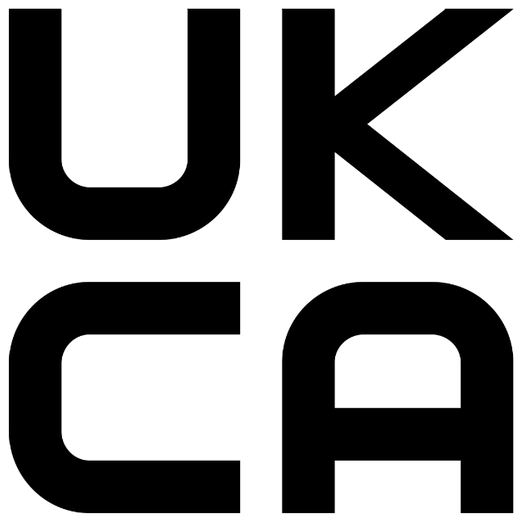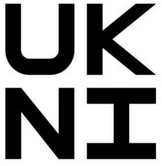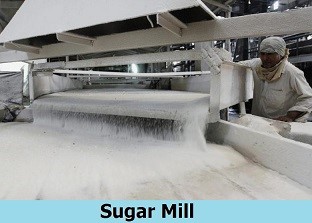Consequent to Brexit, the UKCA marking officially replaces the European Union CE marking, beginning January 1st, 2021, in Great Britain (England, Scotland, and Wales). There will be a transitional period for adapting to UKCA labelling which will last until January 1st, 2023.

It should be noted that the UKCA labelling will be insufficient, in and of itself, in the European Union, Northern Ireland, or the European Economic Area (EEA) which adds Iceland, Liechtenstein and Norway to the mix. The EU’s CE mark will continue to be required for sales outside of Great Britain.
The EU CE mark stands for “Conformité Européenne”, the French for “European conformity”, and outside of Great Britain continues to mean that the manufacturer is responsible for compliance of a product in terms of all applicable European safety, performance, health, and environmental requirements
Another more specific designation, known colloquially as UKCA EX, UKEX, UKCA Ex, or UKCA ATEX, replaces the earlier ATEX designation that deals with explosion protection.
What is the UKCA mark and its Role?
The United Kingdom Conformity Assessment (UKCA) marking now replaces the marking for the majority of items sold in Great Britain (Wales, Scotland, and England) that were formerly covered by the European Union’s CE marking.
Additionally, aerosol goods that previously required the “reverse epsilon” marking (similar in appearance to the numeral “3”) will require instead the UKCA labelling as of January 1st, 2022. Until the end of 2022, the label may be affixed to the product or a document accompanying the product. After January 1st, 2023, the marking must form an intrinsic part of the label on the product.

UKCA Meaning
The UKCA marking indicates that products so designated have been assessed, and meet conformity standards for health, safety, performance, and environmental guidelines. In essence, this means that a product is certified to meet the legislated standards across all domains for products sold in Great Britain.
UKCA Regulations
- If a company alters the size of the UKCA logo, the dimensions of the letters forming the marking must remain in the proportion shown throughout this document;
- The UKCA marking is restricted to showing the product’s conformity to the United Kingdom legislation only, and businesses may not place markings that may provide the wrong impression or misinform about the meaning of the UKCA marking;
- The UKCA logo may not be placed on any product unless specified as a requirement by the legislation;
- Only the manufacturer (or where allowed by legislation, its authorised representative) may place a UKCA marking on a product;
- Businesses take complete responsibility for the product’s conformity with respect to the UKCA standards of any legislation regarding their product attested to by the UKCA marking;
- The UKCA symbol must be both legible and visible;
- The UKCA standards state that the UKCA symbol must be at least 5mm in height — notwithstanding a different minimum dimension provided in the relevant legislation.
UKCA Machinery Directive
The EU’s Machinery Directive 2006/42/EC is now replaced with the UK’s equivalent Supply of Machinery (Safety) Regulations 2008.
For machinery in Great Britain, the UKCA logo began to supplant the CE marking beginning in January 2021. Until the last day of 2023, the UKCA marking may be placed directly on the machine or on its accompanying documentation. From January 1st, 2024 the mark must be placed directly on the product.
Whilst essentially the same standards used in the EU, the UK standards will be prefaced with “BS”. This indicates that they are the standards adopted by the British Standards Institution, as the United Kingdom’s National Standards body.
UKCA Certification
UKCA Machinery Checklist
- Self-certify a machine for the UKCA certificate
If the manufacturer could self-certify before Brexit, they may continue to do so with a UKCA Declaration of Conformity (DoC), certifying that the product meets all essential requirements. These are the areas where self-declaration is permitted.
- Perform a Design Risk Assessment (DRA)
Even with modifications, self-assessment for conformity may proceed. However, if there are substantial design changes which make it essentially or functionally a “new machine” then it must be reassessed
- Changes for Industrial Machines
Extensive changes, such as changing a manually operated machine to a computer controlled machine, would require a new certification. This could require hiring engineers to do the assessment, if the business doesn’t already have qualified staff capable of making the assessment
UKCA Mark Usage
The UKCA logo (UKCA marking) is for goods previously requiring the CE marking. As part of the UKCA labelling practices, this mark is only relevant in Great Britain (England, Scotland, and Wales). Additionally, the UKCA marking is not recognised as authoritative in the EU market. Products need a CE marking when provided for sale in the EU.
Northern Ireland
UKCA logo is not used for goods placed on the Northern Ireland market. For UKCA to CE sales in Northern Ireland the UKNI marking will serve the purpose of designating goods placed on the NI market which have passed third party conformity assessment by a UK-based assessment body.

Provided NI businesses are able to self-declare conformity to EU standards that apply in NI, the UKNI marking is not necessary as the CE marking is acceptable on its own. This also applies if businesses use an EU Notified Body for testing or mandatory conformity assessment. In these two cases, the CE marking is still sufficient in the Northern Ireland market. See the official guidance on placing goods on the Northern Ireland market.
Qualifying NI goods may possess either the CE mark (under unfettered access rules) or both CE and UKNI.
UKCA to CE; CE to UKCA
Ultimately, there is no real difference for UKCA vs. CE certifications. They are both directed at achieving high safety, health, environment, and conformance to standards. In order to use the UKCA mark, companies will still have to do exactly the same things as they did to apply the CE mark, and EU businesses will have to do the same to acquire the UKCA mark for products they wish to sell in the UK.

In most cases they will use exactly the same standards, risk assessments, testing data results, and even the same technical files. Really, changes amount to where something is intended to be sold, and which logo is ultimately placed on the product, with some relatively minor wording changes with respect to the Declaration of Conformity.
For UKCA to CE sales in the “Single Market” EU and the EEA, they will continue to require CE certification, and the UKCA will have no official status outside of Great Britain. For CE certification, companies will require an arrangement with an “Authorised Representative” with an EU address. The reverse is true, in that products placed in the GB market will require an Authorised Representative with an address in Great Britain.
The UK Approved Bodies can approve the UKCA labelling, but may no longer provide the CE marking. UK Approved Bodies are those that did not elect to continue to meet EU standards, and which were formerly known as UKCA Notified Bodies.
UKCA ATEX Certification
For the UK, ATEX Certification formerly fell under the categories of Directives for Equipment 2014/34/EU (aka ATEX 114), and Health & Safety under ATEX 153. The UK’s own version has several monikers already, includingUKEX, UKCA ATEX certification, UKCA Ex certification, UK ATEX, UKCA Ex, and UKCA ATEX.
Irrespective of which one becomes popular and ends up dominating, each means that these products are properly constructed, tested, certified, and safe to operate in their designated environments (sometimes called EX Zones) without causing harm.
EX Zones are those areas with potentially explosive atmospheres. These environments can exist anywhere, of course, but are most often found in either of two distinct environments: those with airborne particulates, and those with flammable gases.
In milling operations, such as sugar, grain, or lumber, the airborne particulates can lend themselves to immolation because they are small, rapidly consumed, and are surrounded by air to support their combustion. Due to the materials (such as starches and sugars), used for fillers in manufacturing pharmaceutical drugs, pharmaceutical manufacturers can become dangerous environments requiring improved safety measures.

Gaseous substances present the other flammability hazard. Dangerous concentrations of aerosolised volatile liquids might be found in the petrochemical industry, on paint lines for auto manufacturing, or cleaning lines preparing stock for manufacture, too. Other likely situations include manufacturers of pressurised propellants (aerosolised substances in cans), welding, and natural gas used for home heating

UKCA ATEX certification
For this reason, UKCA ATEX certification is designed to assure that any products or devices made available for sale in Great Britain (England, Scotland and Wales) cannot create a point of ignition, or that any point of ignition so created is contained, controlled, and not capable of triggering a large conflagration or explosion. UKCA ATEX must protect the health and safety of workers, property, members of the public, and where applicable, livestock and infrastructure.
The legislation for the Approved Body process was opened under the unwieldy name of The Equipment and Protective Systems Intended for Use in Potentially Explosive Atmospheres Regulations 2016 (UKSI 1107:2016), later amended to The Product Safety and Metrology (UKSI 696:2019 ), and then blended into Schedule 25 of UKSI 696:2019.
The Takeaway
The process began in January 2021, and is expected to be complete by December 2023. There’s plenty of time still, so everyone should be able to meet the schedule. UKCA, UKNI, UKEX, CE, and ATEX are fairly self-consistent, not straying from each other’s values about safety and conformance.
The job is to assure the right designation for products is met, including duplicates and parallels for multi-country sales. It should be easy no matter what opinion is held on Brexit!